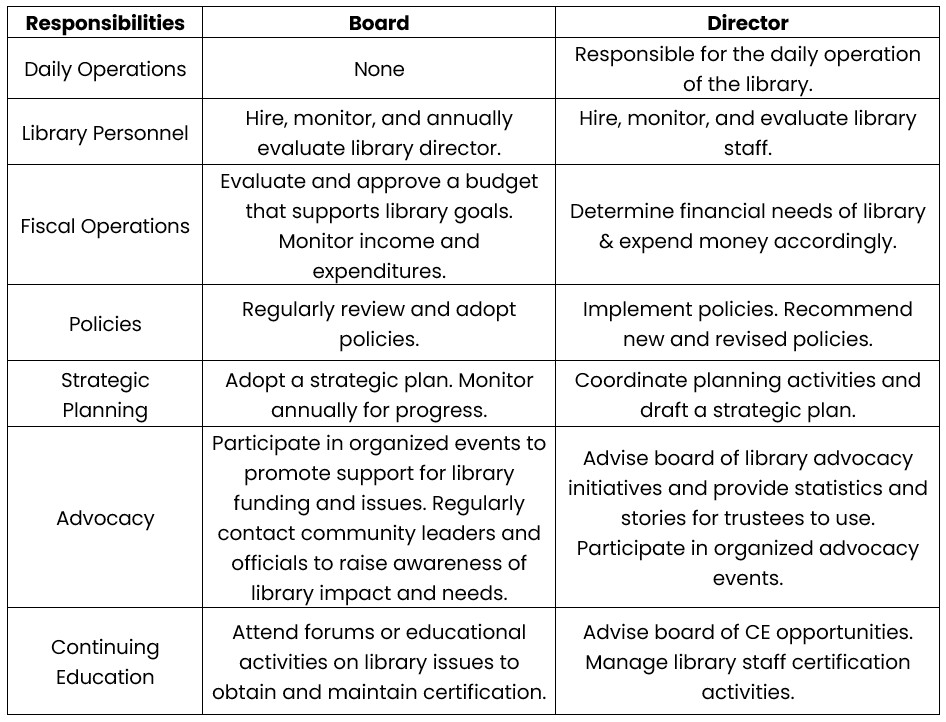This brief overview highlights basic information regarding library boards and the director - board relationship. For extensive details, sample documents and tools on library board governance, see the Kentucky Public Library Trustees page and the Trustee Manual . KDLA also encourages trustees to watch the five videos offered in our Trustee Certification Program, which cover trustee and director roles, library board meetings, governance, fiscal responsibility, strategic planning and advocacy.
The library board provides oversight and governance of the library while the director manages day-to-day operations. Authority for management of the library will be from the board of trustees to the director who then delegates to other personnel. Among other duties, the director has responsibility for policy interpretation and issuance of procedural directives.
Division of Duties

Best practices for the director's relationship with the board include:
- The director is accountable to the board and should have latitude to exercise independent judgement in executing board policy. Effective management of the library can exist only through mutual understanding and cooperation between the director and the board.
- The director should give the board full and timely information concerning pertinent matters that relate to the management of the library, usually at the library's monthly board meeting.
- The director is responsible for overseeing the hiring of personnel within the limitations of board policy and the budget. The director determines the appropriate compensation, training, supervision, discipline, and termination as necessary. Board members should refrain from discussing management and personnel issues with staff other than the director, except as outlined in the employee grievance procedure. The board, in consultation with the director, may confer with key personnel at regular or special meetings of the board.